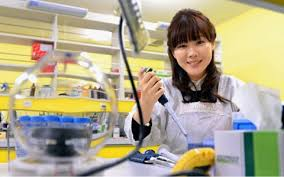
Breaking News
 COMEX Silver: 21 Days Until 429 Million Ounces of Demand Meets 103 Million Supply. (March Crisis)
COMEX Silver: 21 Days Until 429 Million Ounces of Demand Meets 103 Million Supply. (March Crisis)
 Marjorie Taylor Greene: MAGA Was "All a Lie," "Isn't Really About America or the
Marjorie Taylor Greene: MAGA Was "All a Lie," "Isn't Really About America or the
 Why America's Two-Party System Will Never Threaten the True Political Elites
Why America's Two-Party System Will Never Threaten the True Political Elites
 Generation Now #7 – Youth in Davos | Youth Pulse 2026 | Skills That Matter
Generation Now #7 – Youth in Davos | Youth Pulse 2026 | Skills That Matter
Top Tech News
 How underwater 3D printing could soon transform maritime construction
How underwater 3D printing could soon transform maritime construction
 Smart soldering iron packs a camera to show you what you're doing
Smart soldering iron packs a camera to show you what you're doing
 Look, no hands: Flying umbrella follows user through the rain
Look, no hands: Flying umbrella follows user through the rain
 Critical Linux Warning: 800,000 Devices Are EXPOSED
Critical Linux Warning: 800,000 Devices Are EXPOSED
 'Brave New World': IVF Company's Eugenics Tool Lets Couples Pick 'Best' Baby, Di
'Brave New World': IVF Company's Eugenics Tool Lets Couples Pick 'Best' Baby, Di
 The smartphone just fired a warning shot at the camera industry.
The smartphone just fired a warning shot at the camera industry.
 A revolutionary breakthrough in dental science is changing how we fight tooth decay
A revolutionary breakthrough in dental science is changing how we fight tooth decay
 Docan Energy "Panda": 32kWh for $2,530!
Docan Energy "Panda": 32kWh for $2,530!
 Rugged phone with multi-day battery life doubles as a 1080p projector
Rugged phone with multi-day battery life doubles as a 1080p projector
 4 Sisters Invent Electric Tractor with Mom and Dad and it's Selling in 5 Countries
4 Sisters Invent Electric Tractor with Mom and Dad and it's Selling in 5 Countries
Progress to turning silicon transistors into qubits which could enable billion qubit ...

Keiji Ono and colleagues from the RIKEN Center for Emergent Matter Science and the Toshiba Corporation in Japan, in collaboration with researchers from the United States, are investigating the properties of qubits produced by imperfections or defects in silicon MOSFETs. In particular, they are exploring their potential for developing quantum computing devices that are compatible with current manufacturing technologies.
"Companies like IBM and Google are developing quantum computers that use superconductors," explains Ono. "In contrast, we are attempting to develop a quantum computer based on the silicon manufacturing techniques currently used to make computers and smart phones. The advantage of this approach is that it can leverage existing industrial knowledge and technology."
After cooling a silicon MOSFET to 1.6 kelvin (−271.6 degrees Celsius), the researchers measured its electrical properties while applying a magnetic field and a microwave field.



